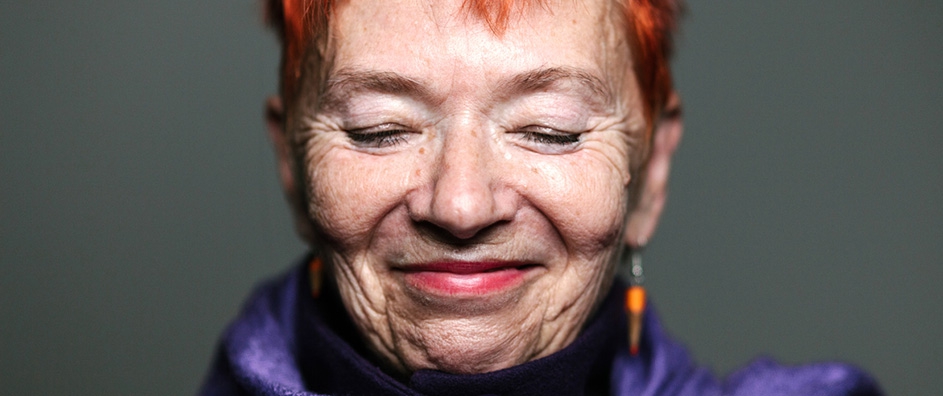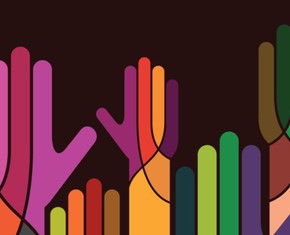The views expressed in our content reflect individual perspectives and do not represent the authoritative views of the Baha'i Faith.
Since the dawn of human history, people have followed the inspiring teachings of the prophets, who each received a revelation, a download of divine knowledge.
In almost every known culture, those who experienced contact with the divine became prophets and religious teachers, and then taught the population a mystical, religious and moral system of beliefs. Abraham, Krishna, Moses, Buddha, Zoroaster, Christ, Muhammad and now Baha’u’llah each experienced God’s inspiration and founded great Faiths. All of those prophets and their teachings gave birth to widespread religions, which become the authoritative basis for future civilizations and cultures.
Four out of five people on Earth today follow the teachings of one of those prophets. The mystical and material knowledge the prophets and messengers of God received in their revelations, and then transmitted to humanity, guides the overwhelming majority of human beings, and forms the basis for our civilizations.
So given the evidence, the inspiration the prophets received has convinced vast numbers of people throughout history that their insights and guidance provide us with a reliable indicator of the truth. The Baha’i teachings say so, too—and cite revelation as the only true source of certitude:
… the grace of the Holy Spirit is the true criterion regarding which there is no doubt or uncertainty. That grace consists in the confirmations of the Holy Spirit which are vouchsafed to man and through which certitude is attained. – Abdu’l-Baha, Some Answered Questions, newly revised edition, p. 345.
Of course, to determine the real truth, we still have to rely on our own imperfect perceptions and understandings of those revelations. Our own individual inspiration, no matter how brilliant, creative and seemingly revelatory, falls far short of what the major prophets and messengers brought to humanity. That means the revelations of the great Faiths, regardless of the grace of the Holy Spirit, still rely on human understanding to put them into action. As the Baha’i teachings say:
Consequently, it has become evident that the four criteria or standards of judgment by which the human mind reaches its conclusions are faulty and inaccurate. All of them are liable to mistake and error in conclusions. – Abdu’l-Baha, The Promulgation of Universal Peace, p. 253.
Where do we go, then, to determine reality? How do we get past the inevitable mistakes and errors in judgement we all make? How can we fallible human beings ever reach for an infallible source of truth?
If every person recognized that “the four criteria or standards of judgment by which the human mind reaches its conclusions are faulty and inaccurate,” we might begin to understand that we need to employ all of these standards at once in our search for truth. Using one is never sufficient; two aren’t much better; utilizing three of the standards of judgment may get us a little closer to the truth; but employing all four of the truth-discerning methods we’ve identified might result, the Baha’i teachings say, in a reliable way of finding truth:
But a statement presented to the mind accompanied by proofs which the senses can perceive to be correct, which the faculty of reason can accept, which is in accord with traditional authority and sanctioned by the promptings of the heart, can be adjudged and relied upon as perfectly correct, for it has been proved and tested by all the standards of judgment and found to be complete. When we apply but one test, there are possibilities of mistake. This is self-evident and manifest. – Abdu’l-Baha, The Promulgation of Universal Peace, p. 255.
If we combine and use all of our truth-discerning and truth-telling faculties—the senses, the intellect, authority and inspiration—we have a much better chance of uncovering the reality of our existence. While each one of them, by itself, has a tendency to error, all of them together offer us the most reliable way we know to uncover truth.
The Baha’i teachings say that searching for spiritual grace, though, will always produce the best results in any quest for truth. We can only find true certitude in this world if we employ all four of our truth-determination tools, and then do our best to access the spiritual grace only the mystical can provide. That grace begins, Baha’is believe, with a truly independent investigation of the truth:
If a man were to declare, “There is a lamp in the next room which gives no light”, one hearer might be satisfied with his report, but a wiser man goes into the room to judge for himself, and behold, when he finds the light shining brilliantly in the lamp, he knows the truth!
Again, a man proclaims: “There lies a garden in which there are trees with broken branches bearing no fruit, and the leaves thereof are faded and yellow! In that garden, also, there are flowering plants with no blooms, and rose bushes withered and dying — go not into that garden!” A just man, hearing this account of the garden, would not be content without seeing for himself whether it be true or not. He, therefore, enters the garden, and behold, he finds it well tilled; the branches of the trees are sturdy and strong, being also loaded with the sweetest of ripe fruits amongst the luxuriance of beautiful green leaves. The flowering plants are bright with many-hued blossoms; the rose bushes are covered with fragrant and lovely roses and all is verdant and well tended. When the glory of the garden is spread out before the eyes of the just man, he praises God that, through unworthy calumny, he has been led into a place of such wondrous beauty!
This is the result of the slanderer’s work: to be the cause of guiding men to a discovery of the truth. – Abdu’l-Baha, Paris Talks, pp. 103-104.
The Reality is the Truth, and truth has no division. Truth is God’s guidance, it is the light of the world, it is love, it is mercy. These attributes of truth are also human virtues inspired by the Holy Spirit.
So let us one and all hold fast to truth, and we shall be free indeed! – Abdu’l-Baha, Paris Talks, p. 121.
















Comments
Sign in or create an account
Continue with Googleor